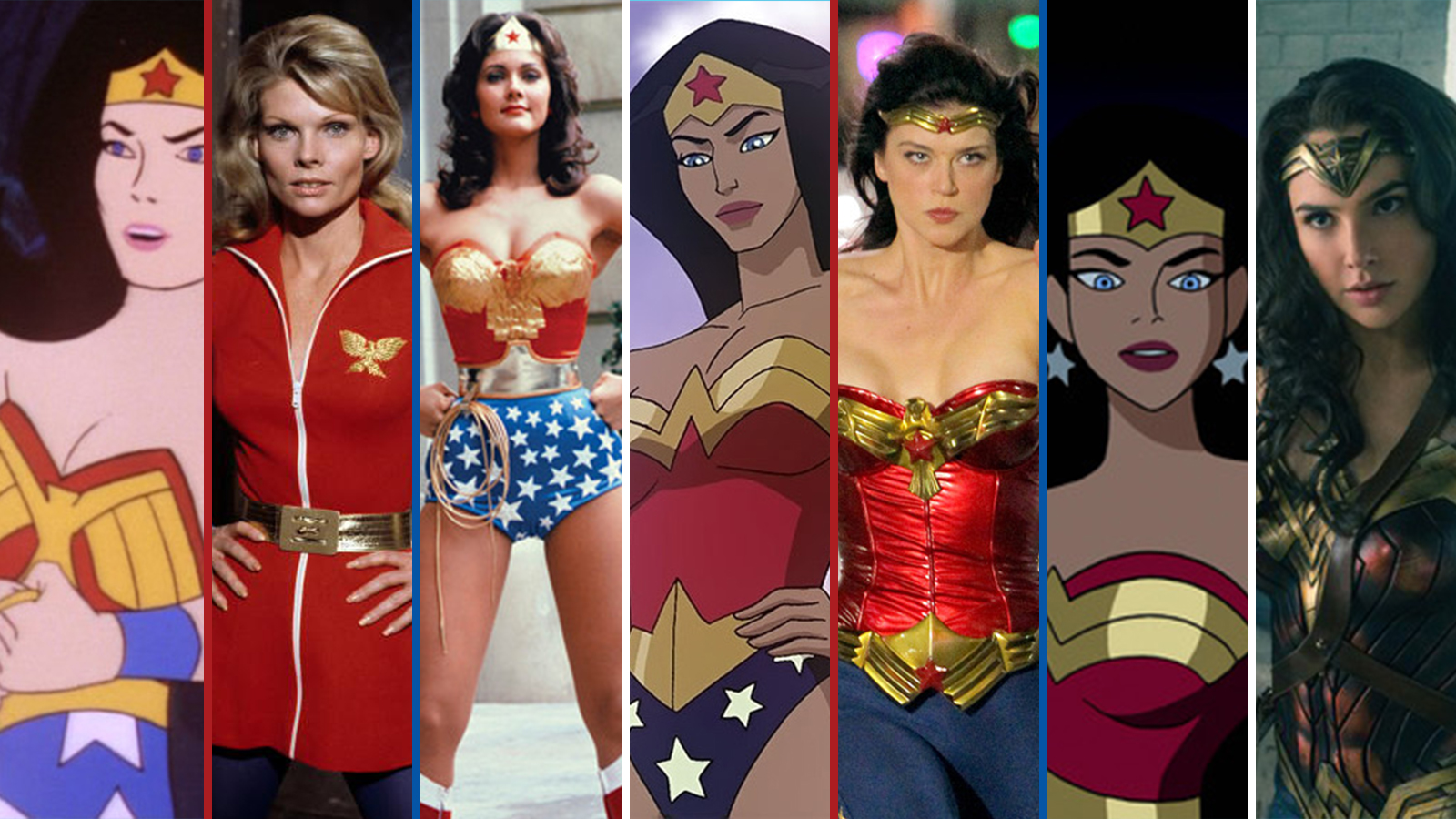To all of us she is Wonder Woman, but today Gal Gadot celebrates her 35th birthday. This year was due to see the release of Wonder Woman: 1984, however due to coronavirus this has been delayed. So, we decided to look at Wonder Woman and the history behind one of the most influential female superheroes.
Wonder Woman: 1984 is due to be released this year. This will be the second solo film for the character in 80 years. Since her first comic book appearance in 1941, Diana Prince, aka Wonder Woman has been a feminist icon in the media, and was designed purposefully to go against the male superheroes running the show at the time.
Whilst there have been other female heroes before and after her, many tout her as being the most famous female superhero, and she is certainly the one to have taken the most hold when it comes to other media.
In 1974, Wonder Woman was brought to our screens for the very first time in a TV movie starring Cathy Lee Crosby. Originally intended to act as a pilot for a series on ABC, the film was a slight move away from the Wonder Woman known in the comic books – she didn’t wear her iconic costume, didn’t appear to have any super-human powers and was blonde.
Whilst this was actually reminiscent of a time in the comics where the character was “reinvented” to help with sales, the attempt to update the character was eventually hailed a mistake as it received disappointing ratings and the film landed dead in the water.
A year later, ABC decided to give it another go and produced a new TV movie staring Lynda Carter, and so the original Wonder Woman was born. Her performance was so endearing to fans and critics that she is still closely identified with the character all these years later.
The show lasted three series and was so popular it even influenced the comic books, which added Carter’s signature ballerina spin to change into her hero costume.
Despite the success and legacy of the series, Wonder Woman did not see any major screen adaptations for several decades. However, she did appear in several animated features such as The Lego Movie (2014), various Justice League cartoons and her own solo film in 2009 with the voice of Keri Russel.
It wasn’t until 2016 that we actually saw Wonder Woman on the big screen, though admittedly as a cameo part in another movie. The second film in the DC Extended Universe, Batman v Superman: Dawn of Justice featured Israeli actress Gal Gadot taking over the iconic role.
For her portrayal, gone are the familiar star-studded blue pants that Wonder Woman is known for. Instead she wears Amazonian armour, very subtly in her signature colours keeping her bracelets and tiara.
Despite only having 7 minutes of screen time in the film, Gadot’s performance was viewed as the best part of the movie by many and served as a sneak peak into her own solo film released a year later.
Wonder Woman (2017) was the first female led superhero movie in over a decade, and also was the first to be directed by a woman. Taking over from Lynda Carter, Gadot’s portrayal, confirmed Wonder Woman being “badass” – as Gadot was a former member of the Israeli army and went through an intense training regime involving various kinds of martial arts.
Despite this, she wasn’t always appreciated and when her casting was announced she was criticised for having the wrong body type, of all things. Wonder Woman has always been depicted as curvy (perpetuated by the voluptuous Lynda Carter) and to some that was the only requirement for the job.

Image credit: IndieWire
Despite this (blatant) sexism that Diana herself would have scoffed at, the film was a fantastic success and is hailed as one of the best films of the DC Extended Universe.
Wonder Woman (2017) marked a change in the film industry and has begun to pave the way for future female-led films. Superheroes have always been something of a “boys’ club” with big strong men solving all the world’s problems, and if there are women heroes, they’re usually side characters taking a back seat.
And whilst that’s still something of the case, female superheroes are slowly rising out of mens shadows and coming into their own. With Captain Marvel (2019), Black Widow (2020) and many other female led superhero adaptations in the pipeline, Wonder Woman has always been a character that women are not only proud of but can see themselves in.
By Polly Harrison
Feature image: WatchMojo

